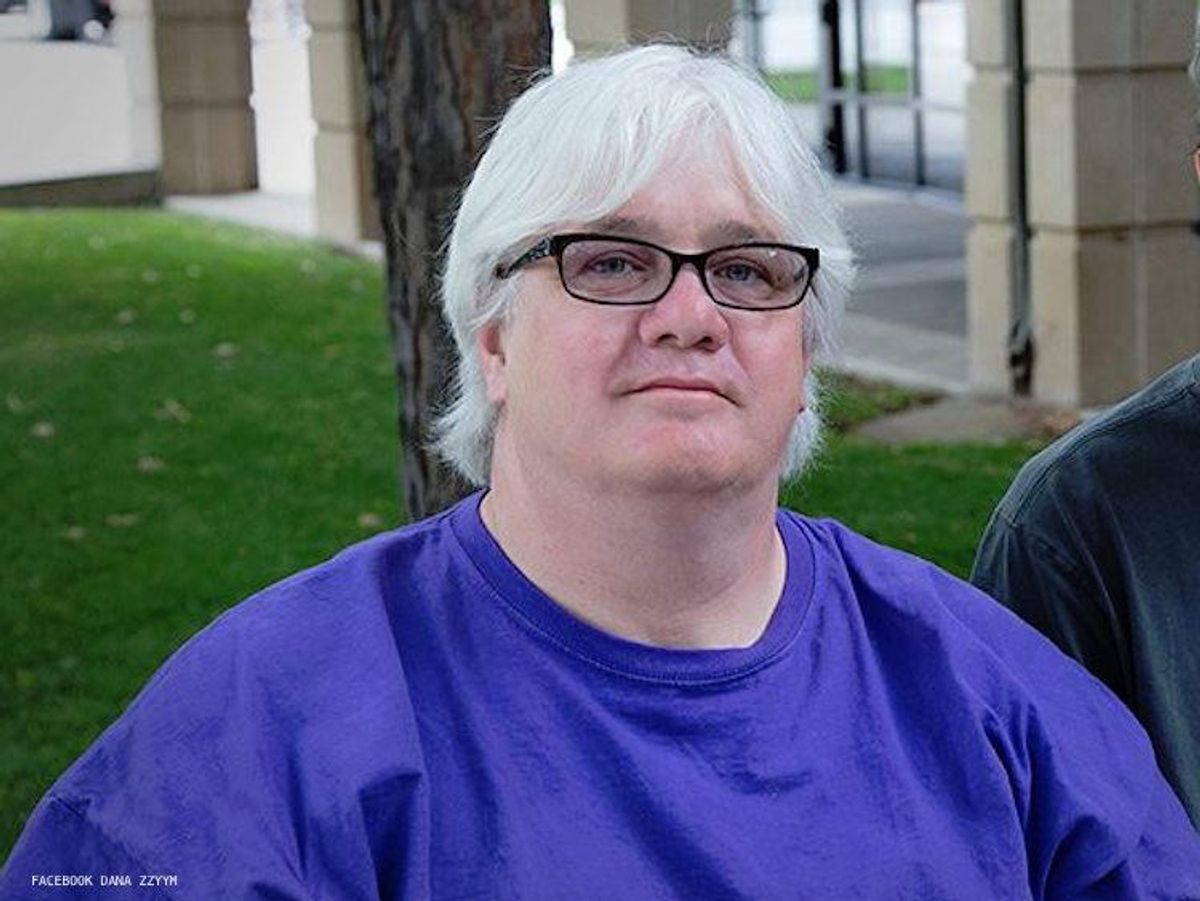An intersex person from Colorado who identifies as neither male nor female is suing the U.S. State Department after being denied a passport after they refused to select a gender on the application.
If successful, Dana Zzyym, a U.S. Navy veteran, would be the first U.S. citizen to have an X listed as their gender marker on their passport. Zzyym confirmed with The Advocate that they prefer the gender-neutral pronouns they, them, and their to refer to themselves.
Zzyym filed a federal discrimination lawsuit in Denver this week, saying it was a constitutional violation to force an intersex person to select a gender in order to travel abroad. At the time, they were trying to travel to Mexico City for the International Intersex Forum, according to Reuters.
"I am not male, I am not female, I am intersex, and I shouldn't have to choose a gender marker for my official U.S. identity document that isn't me," Zzyym said in a statement obtained by Reuters.
Zzyym is hoping to set a precedent that could have a sweeping impact on the accuracy of government-issued identification obtained by intersex and other nonbinary Americans, whose gender identity does not conform to the rigid male-female binary.
"What I want to do is set a precedent by my passport, opening that door up for everybody else who doesn't conform to the binary, so all intersex people, all nonbinary people, have a chance to get their passport if they choose, under their true identity," Zzyym tells The Advocate in a phone interview. "That's the whole concept."
Zzyym was born in 1958 with "ambiguous external sex characteristics," prompting the gender box on their birth certificate to be left blank initially, Reuters reports from Zzyym's legal complaint.
They were raised as a boy. "Similar to many other intersex children, by age five, Dana had been subjected to several irreversible, invasive, painful, and medically unnecessary surgeries designed to make Dana's body conform to binary sex stereotypes," the complaint said, according to Reuters.
In 1978, Zzyym joined the U.S. Navy and served as a machinist mate during several tours of duty, but left in 1984 and decided to explore their gender identity. After presenting as female for a time, which also didn't feel right, Zzyym concluded that gender was "arbitrary," Reuters reports.
Zzyym's lawyer, Paul Castillo of Lambda Legal, tells The Advocate that Zzyym isn't seeking financial compensation but is hoping to force a change in U.S. policy.
"We've asked for the U.S. Department of State to process the passport in a nondiscriminatory manner, and enjoin the State Department from applying what they call as their male or female, binary-only policy," says Castillo. "One of the reasons that Dana suggested X as the marker is because that marker specifically conforms to the U.N. specifications for international travel. There's already a mechanism in place, as has been adopted by many countries, that utilize that X marker designation."
Castillo was refererring to standards laid out by the International Civil Aviation Organization, a United Nations Specialized Agency that issues guidelines for what information is required on international travel documents, including passports.
Countries such as Malta, India, Nepal, Australia, and New Zealand provide a third-gender option on passports, and some nations are considering making a similar change, Kyle Knight wrote in The Advocatethis week.
Sunnivie Brydum contributed to this report.













































































